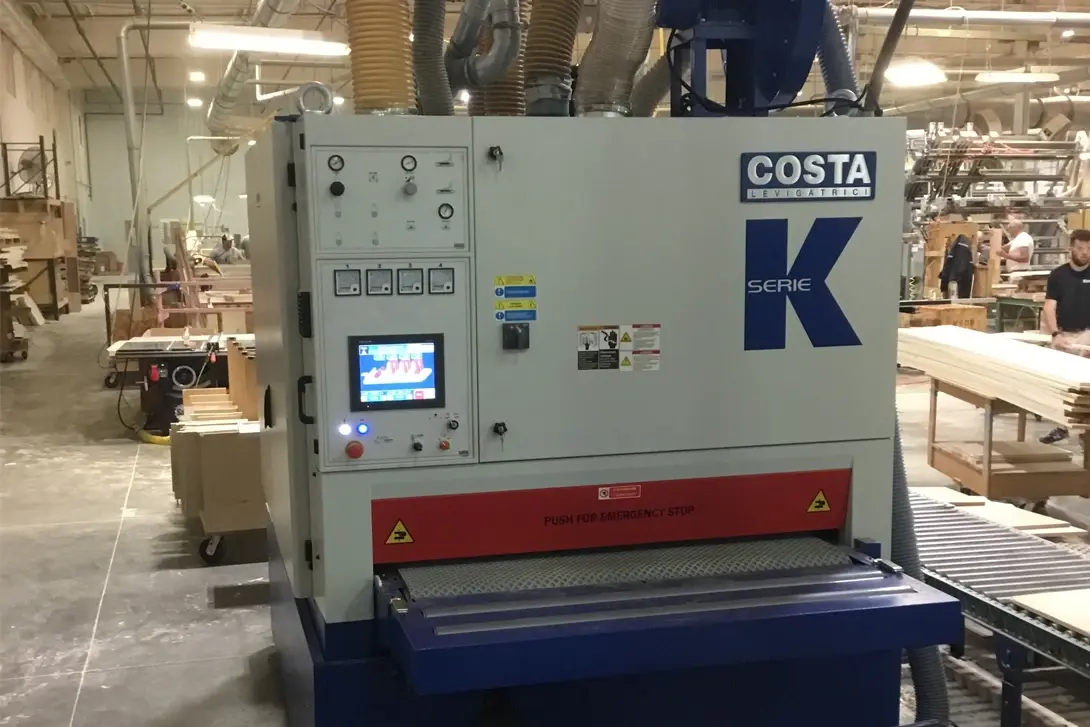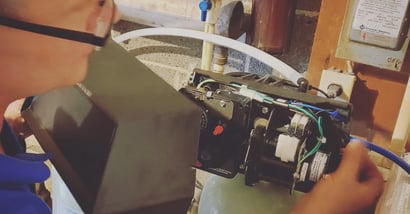For Horning Manufacturing, the “made-to-order” model doesn’t work. The equipment they produce has long lead times of 10 weeks or more depending on the product and, to make things more complex, 60% of their sales are concentrated within a 3-month window. Realistically, they need to know how much of each product they will sell a year or more in advance, forcing them to take a more proactive and farsighted approach to inventory management. So, how do they do it?
When Leon Horning Sr. started building feed processing rolls he wasn’t looking to build an enterprise. As a dairy farmer himself, he was simply looking to improve his own cows’ nutrition by producing his own equipment. Seeing success, neighboring farms asked him to build for them too. Quickly this farmer-driven solution grew into Horning Manufacturing, a trusted provider of high-quality forage equipment for today's agricultural needs. But as the business grew, they found that the accounting software they were using just didn’t have the inventory tools they needed to keep pace with the demands of the business. Even after they relocated their operations to a new facility, and streamlined many of their operations they still didn’t have a trusted method to tie their inventory into their financial tools.
“Obviously we needed good financial management, but when it comes down to it – if your inventory and manufacturing isn’t correct, then your financials aren’t going to be correct.”
– Leon Horning, 2nd generation owner
In 2019, the outside Accountant they were working with suggested EBMS. He was familiar with its capabilities and was confident it would be a game-changer for their company. He was right.
With EBMS, the team at Horning are better able to manage their inventory from season to season and keep their financials in good order. By analyzing past sales data and helping them identify trends, they can pinpoint minimum inventory levels well ahead of the busy season. This allows the team at Horning to strategically stock the equipment their customers need, ensuring they're prepared to meet demand when it peaks.
“One of the strong points EBMS has is how it keeps track of the history of things. It’s also done very well for us reporting on the financials. There’s almost nothing you can’t easily look up.”
Horning believes continuous improvement is key to effective systems. With Koble, they're able to tailor their ERP to fit their current and future needs.
“One thing you’ve gotta keep in mind is that when you set up a new software system, you first learn what you need for today. And then for the rest, you keep working through it.”
For example, Horning has more recently started to use EBMS to link to their manufacturing prints. Previously they’d kept a physical “master” print on hand, since storing copies of prints in the document tab of every inventory part would be unmanageable. But as file sharing has continued to improve, and with a unified system like EBMS, their processes too can improve. Now they store file links within EBMS and they’ve replaced their previously cumbersome paper system. This way, their documents stay up-to-date, and all the information they need can be accessed from one place.
So what’s next for Horning Manufacturing? From what the trends show, the next few years might be a bit slower for the ag industry as a whole. But the team at Horning welcomes the slower season, as it allows them to focus more on the innovations that had to be put on hold before. Whether refining their current products or doing some research and development for new solutions, Horning is excited to keep building for the future, and tackle whatever challenges come next.

Kelsey Stout is the Head of HR & Marketing at Koble. She loves helping people build strong and lasting businesses with meaningful work, the right systems in place, and a strong approach to culture. When not telling Koble stories, Kelsey can be found writing children's fiction, spending time with family, or playing the guitar (poorly but enthusiastically).






